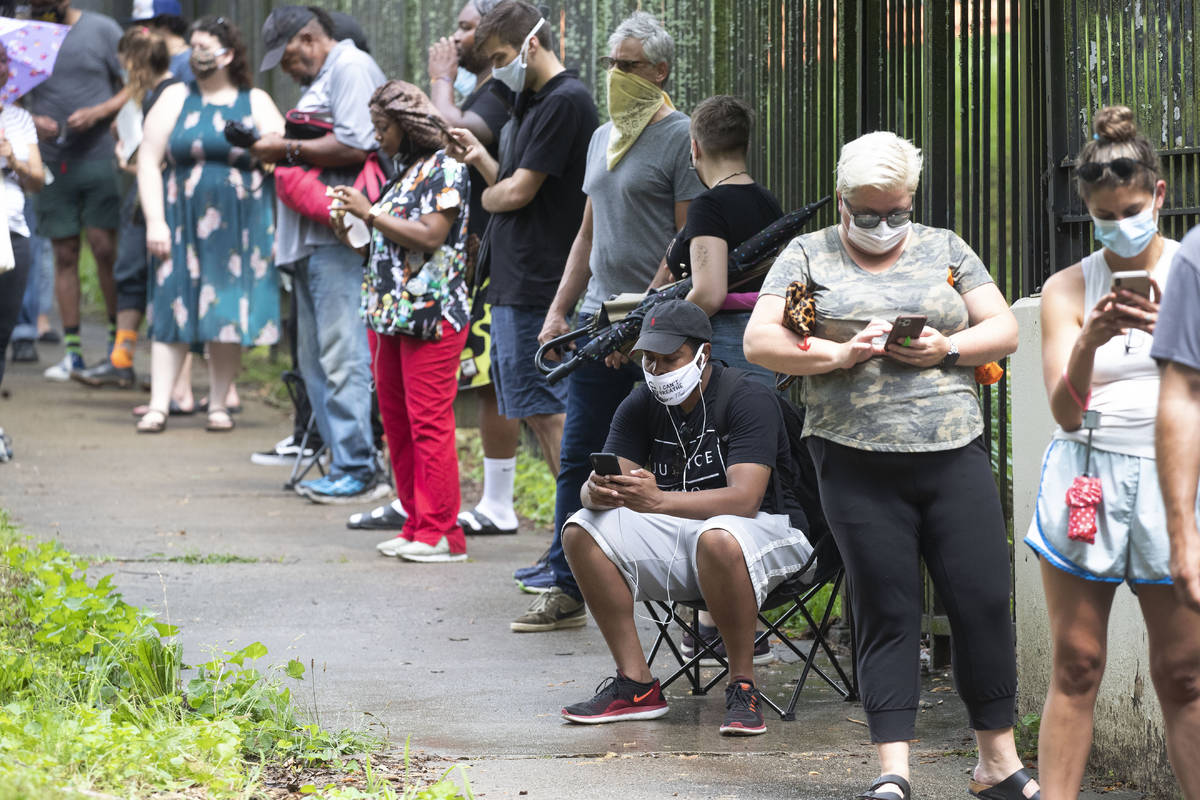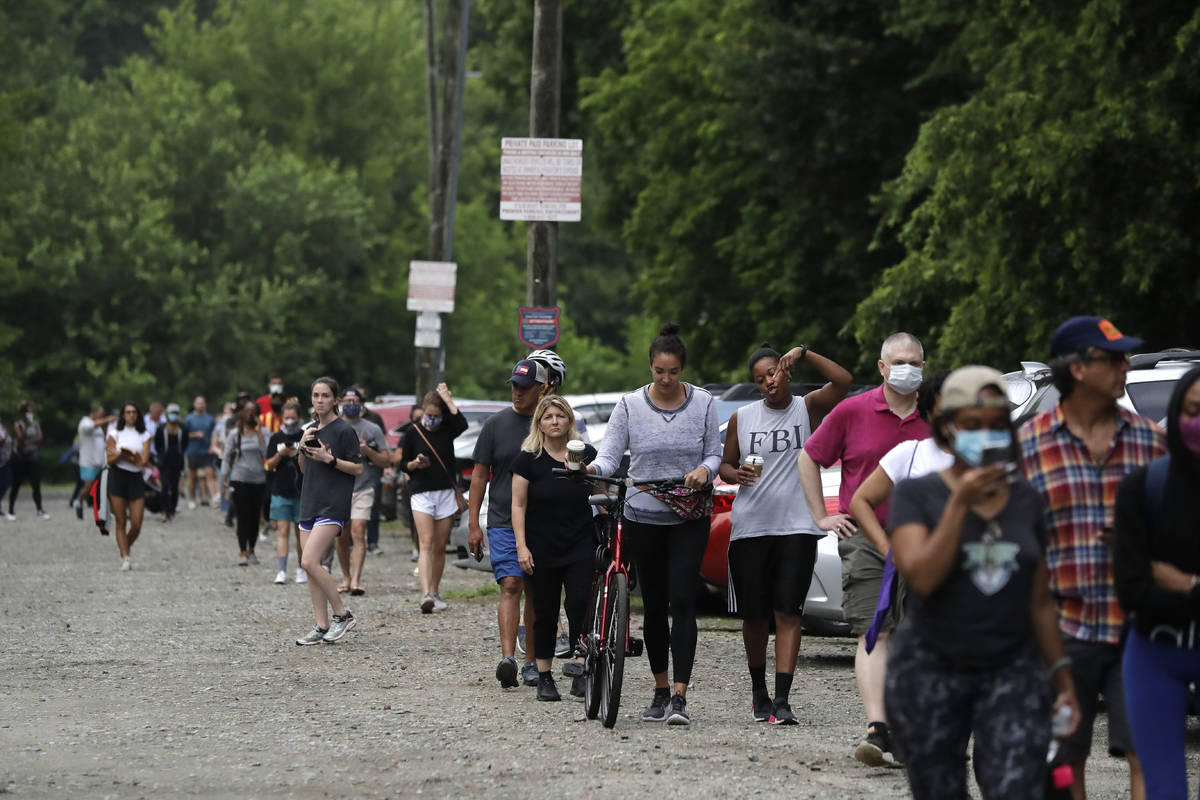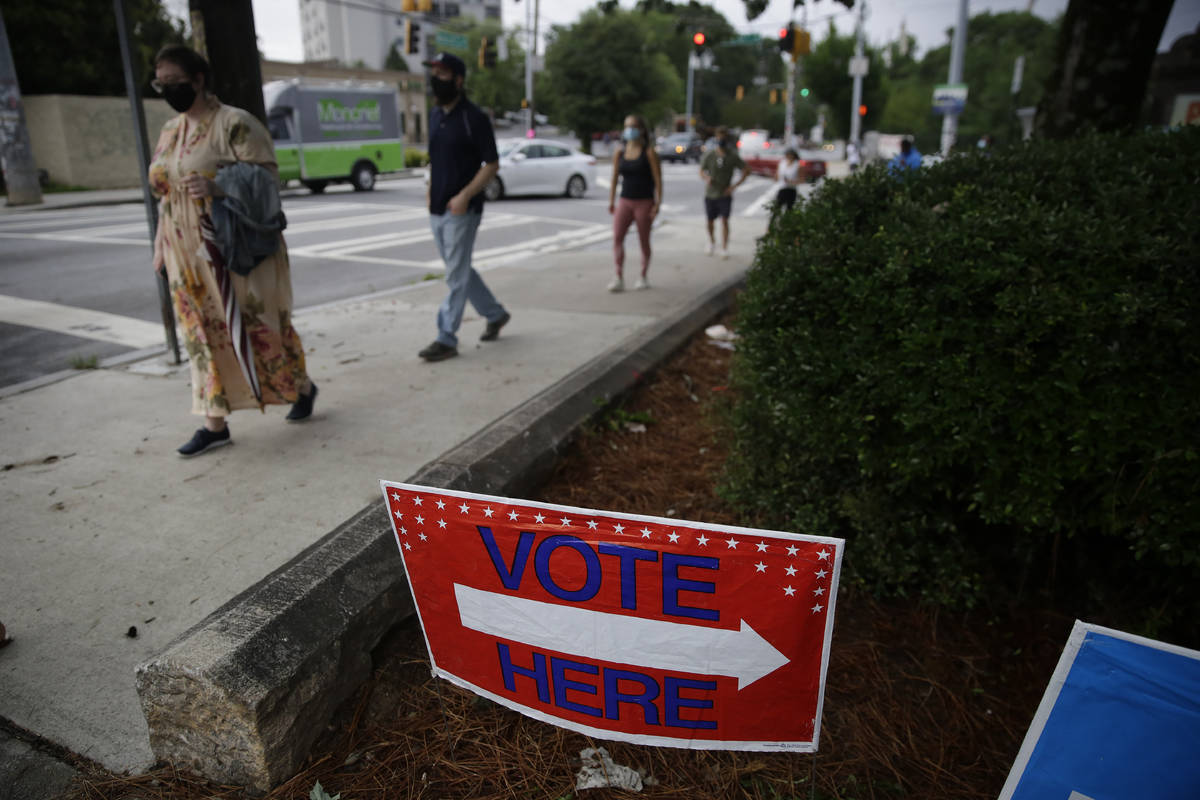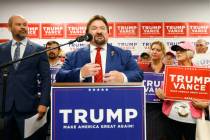Long lines snarl voting in Georgia primaries amid pandemic
ATLANTA — Voters endured heat, pouring rain and waits as long as five hours on Tuesday to cast ballots in Georgia, demonstrating a fierce desire to participate in the democratic process while raising questions about the emerging battleground state’s ability to manage elections in November when the White House is at stake.
“It’s really disheartening to see a line like this in an area with predominantly black residents,” said Benaiah Shaw, a 25-year-old African American, as he cast a ballot in Atlanta.
A confluence of events disrupted primary elections for president, U.S. Senate and dozens of other contests. There were problems with Georgia’s new voting machines, which combine touchscreens with scanned paper ballots. The polls were staffed by fewer workers because of coronavirus concerns. A reduced workforce contributed to officials consolidating polling places, which disproportionately affected neighborhoods with high concentrations of people of color. Long lines were also reported in whiter suburban areas.
Some voters said they requested mail-in ballots that never arrived, forcing them to go to polling places and adding to the lines. Turnout, meanwhile, may be higher than expected as voters said they were determined to vote following the police killing of George Floyd in Minneapolis and the ensuing demonstrations that swept cities including Atlanta.
Former Vice President Joe Biden easily won the state’s Democratic presidential primary. He was facing no real opposition but hoped to post a strong showing among Georgia’s diverse electorate to show his strength heading into the general election.
U.S. Rep. John Lewis roared past Democratic primary opponent Barrington Martin II in Atlanta’s 5th Congressional District.
But the developments were troubling heading into the fall presidential campaign, which will attract even more voters. President Donald Trump and Biden are expected to fiercely compete in this rapidly changing state. That leaves officials, who have already been criticized for attempting to suppress the vote, with less than five months to turn things around.
Americans were also voting in primaries in West Virginia, Nevada and South Carolina. But the tumult in Georgia garnered much of the attention, reinforcing concerns about managing elections amid the coronavirus.
The Biden campaign called the voting problems in Georgia “completely unacceptable,” as well as a threat to American values of free and fair elections.
The Trump campaign seized on the problems to amplify the president’s broader opposition to expanded mail voting this fall.
Elsewhere
CHARLESTON, W.Va. — Shelley Moore Capito moved a step closer toward becoming the first West Virginia Republican to be re-elected to the U.S. Senate in more than a century, easily winning her primary Tuesday night.
Capito defeated two other GOP candidates to set up a November showdown with a Democrat lacking statewide political experience.
West Virginia Gov. Jim Justice secured the Republican nomination for governor on Tuesday as he seeks a second term as the state’s chief executive.
Secretary of State Mac Warner said he knew of no significant or unusual problems at voting places Tuesday. It was the hottest day of the year so far in West Virginia, with temperatures reaching the mid-90s in some communities.
COLUMBIA, S.C. — U.S. Sen. Lindsey Graham won a nomination for a fourth term against three little-known GOP challengers, his last step before an expected general election face-off with Democrat Jaime Harrison in what’s on pace to become the most expensive race in South Carolina history.
Tuesday’s primaries lacked the kind of top-of-the-ballot choice that could drive turnout by voters leery of exposing themselves to the coronavirus pandemic.
State Rep. Nancy Mace won a four-way race for the Republican nomination in South Carolina’s 1st District on Tuesday, advancing to take on surprising 2018 winner Democratic U.S. Rep. Joe Cunningham in November.
Mace avoided the divided and bitter Republican primary that caused a rift two years ago that allowed Cunningham to find a path to be the first Democrat to win the seat in more than 40 years.
BISMARCK, N.D. — North Dakota Gov. Doug Burgum’s big spending appeared to be paying off as two political newcomers he backed were in strong position Tuesday to oust one of the state’s most powerful lawmakers in the Republican primary.
Results being tabulated Tuesday from an election conducted exclusively by mail showed David Andahl and Dave Nehring with substantial leads over House Appropriations Chairman Jeff Delzer. Delzer has served in the Legislature for parts of four decades from a sprawling rural district north of Bismarck.
All 53 counties chose to avoid in-person voting due to the coronavirus. With the post office playing its biggest role for an election in state history, about 137,000 ballots were returned by midday Monday — the day they were due.
Burgum himself easily fended off a primary challenge from Michael Coachman, a retired Air Force veteran who has run several statewide campaigns.






















